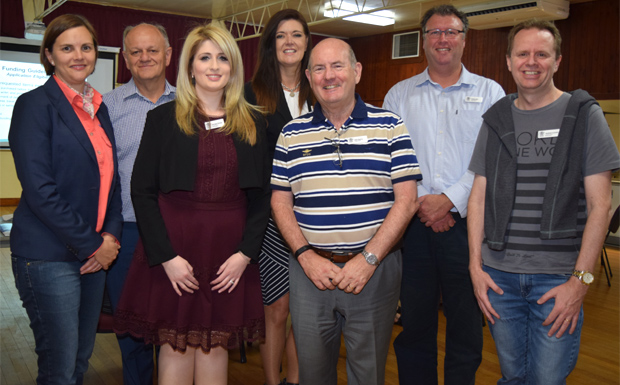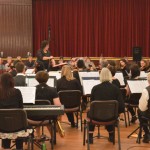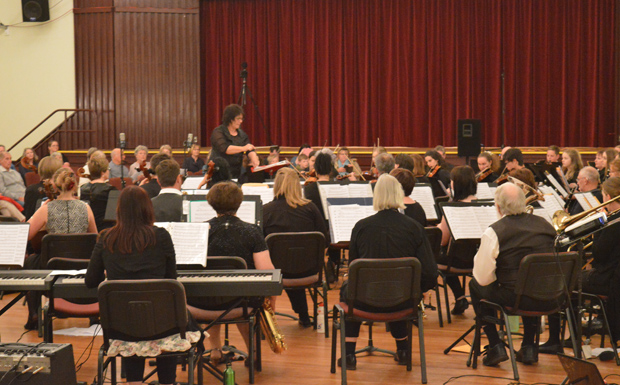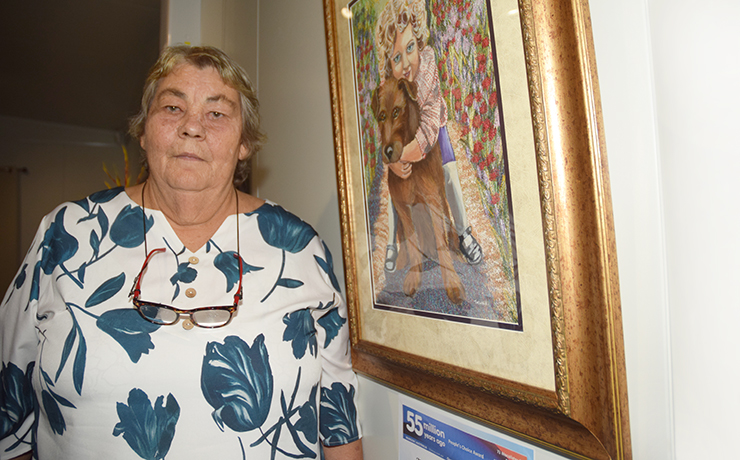
September 24, 2018
Members of Queensland’s largest grants fund – which has given $2.1 million to South Burnett community groups over the past few years – travelled to Kingaroy last Wednesday to tell local groups how to get even more.
Committee members and staff from the Gambling Community Benefit Fund (GCBF) were special guests at a quarterly Grant-Ed workshop organised by the Burnett Inland Economic Development Organisation (BIEDO).
Representatives from more than 20 of the region’s not-for-profit organisations attended the Wednesday night talk at Kingaroy Town Hall’s Supper Room to learn more about how the GCBF works, and pick up tips about how to lodge a successful grant application themselves.
The staff from GCBF explained the fund was established in 1991 and is administered by the Department of Justice and Attorney-General.
The program is funded through gambling revenues and distributes about $54 million a year through four equal quarterly grant rounds which close for applications on February 28, May 31, August 31 and November 30 each year.
Non-profit groups can apply for grants of between $500 and $35,000 to enhance their ability to provide services, leisure activities and opportunities for Queensland communities.
To be eligible, community organisations must have not-for-profit objectives and be registered through the fund’s online portal as either a legal entity (ie. be incorporated and have an ABN) or be sponsored by one that is.
Applicants need to demonstrate their project will provide a benefit to the community, and applications will be rejected if the application has incomplete or missing information, or has previously received a GCBF grant they’ve yet to acquit.
The fund’s guidelines mean it will not give grants to cover salaries and wages; rent or lease costs; administration expenses; consumable items (eg. fuel); uniforms; catering; in-house training or sponsorship.
Nor will it cover items purchased before a grant is approved; the costs of grant writers or project management fees; overseas travel; debt repayments; gifts; alcohol; or goods or services that benefit an individual.
But GCBF chairman Alan Sparkes said other than these things, the main aim of the assessment committee was to see as many worthwhile community projects receive grants as possible.
The committee’s chief regret, he said, was that the fund was usually heavily over-subscribed.
It usually received 1500 to 1600 applications each round but was only able to support 600-700.
However, once a community group registered with the fund, applying for a grant was relatively easy.
The GCBF converted to an entirely online application model two years ago, and any applicant who had difficulties putting their application together was encouraged to ring any of the fund’s 18 permanent staff for help.
Mr Sparkes said the fund had five priority levels for funding.
The top priority was organisations affected by natural disasters. This was followed in descending order by facility improvements or equipment; vehicles (such as buses, cars, caravans, trailers etc); and community events, programs, workshops and festivals.
The lowest priority levels were organisations who had received a GCBF grant of $15,000 or higher in the past two years.
When considering applications, the GCBF committee also looked at a range of other factors.
These included the financial position and age of the organisation applying; the grant’s value-for-money; any contributions the applicant could make towards the project; and a project’s ability to generate income.
Other factors included any benefits flowing to more than one organisation; the geographic location and benefit of a project to a region; the target group being assisted; and any government priority areas in existence at the time.
Mr Sparkes said the biggest mistake most people made when applying for a GCBF grant was to leave their application to the last minute.
And the last few days before any grant round was also the worst time to ring GCBF’s offices.
Mr Sparkes said the successful applicants for any grant round were usually announced five months after the round closed, so there was no penalty if organisations submitted their application in two consecutive rounds.
If they were successful on their first submission, their second submission would be disregarded.
Successful applicants were sent an approval letter, and grant funds were deposited in the group’s nominated bank account 14 days after grant rounds were announced.
Grant acquittals needed to be submitted six months later (except for facility improvements, which are 12 months later), but variations to applications could be approved subject to the fund’s rules.
In exceptional circumstances, variations to acquittal dates were also possible.
Mr Sparkes said the GCBF committee did not mark down applications for poor literacy, and the committee did not recommend that organisations use professional grant writers to prepare applications.
“We want to hear your story,” he said.
“If you’re passionate about your project, just tell us your story the best way you can and we’ll do the rest.”
Mr Sparkes warned that funds might have to be returned if items were purchased before a grant was approved; if unapproved items were purchased; if funds were misspent; or if any other breach of the fund’s guidelines was identified.
But if applicants played by the rules and acquitted their grants, organisations were welcome to reapply for additional funding every two years.
This meant that large projects which needed more than GCBF’s $35,000 grant ceiling could build their project in stages across time.
At the conclusion of the workshop, BIEDO CEO Kristy Frahm thanked Mr Sparkes and the other GCFB members in attendance for visiting the region and passing on their knowledge.
Mrs Frahm said BIEDO intended to run similar Grant-Ed workshops every quarter and focus on different funding sources each time.
Readers can obtain more information about upcoming Grant-Ed workshops by contacting BIEDO on 0429-683-121, or by emailing BIEDO.























